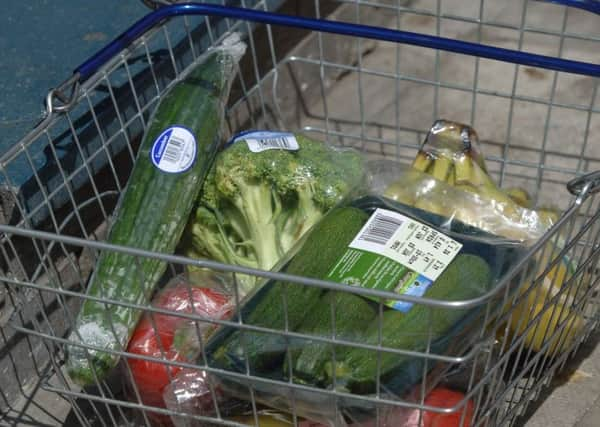Tesco to ban products with ‘excessive’ packaging


Chief executive David Lewis said the supermarket chain would “reserve the right” not to list any products which have too much or non-recyclable packing as it tries to eliminate hard-to-recycle material across the business by the end of 2019.
Writing in a national newspaper, Mr Lewis warned that the “proliferation of plastic in society remains a challenge” and urged all sectors of the consumer goods industry to work together to tackle the problem.
Advertisement
Hide AdAdvertisement
Hide AdHe said: “The need is urgent, and so from next year we will assess the size and suitability of all packaging as part of our ranging decisions, and if it’s excessive or inappropriate, we reserve the right not to list the product.
“We’ll look at this category by category so every product is treated fairly and we’ll give sufficient time to make these changes.”
He said that packaging on consumer goods had been “excessive” for too long.
He added: “We have all looked at the settled contents of a cereal packet and puzzled over the comparative size of the bag and box. Or opened a bag of crisps and wondered why the packaging is twice the size of the contents.”
In January 2018, Tesco set a target to eliminate hard-to-recycle material in its business by the end of 2019. Over the past year it has changed the packaging for 800 Tesco brand products, removing 4,000 tonnes of hard-to-recycle packaging.
Mr Lewis said that, once pioneering methods being piloted in Tesco’s Cambridge branch were rolled out across all stores, the move could remove 490 tonnes of plastic by scrapping multipack tins, 50 million plastic binders on beer cans and 44 million sporks from its “on the go” food range. “The opportunity is huge,” he added.
Other supermarkets have also taken steps to reduce plastic waste. Waitrose removed all disposable coffee cups from its shops in 2018 and no longer sells packs of single-use plastic straws. Asda reduced the amount of plastic in its own brand products by at least 10 per cent last year and removed single-use carrier bags.